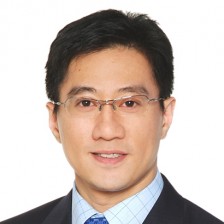The current pandemic has forced teaching to go online. Learning is compromised when content is delivered remotely and often does not conform to the high standards of learning through face-to-face (FTF) interaction, and in the bargain, an important learning opportunity is lost. Moving forward, we need to look at ways to motivate and engage students in creative learning activities without the crutches of grades, assessment anxiety, and tutor control and instead promote collaboration, flexibility, and social learning.
In online learning, passive or active pedagogies result in students downloading course material and uploading the assignments, which form isolated knowledge from selected information and activate some prior knowledge. On the contrary, constructive or interactive pedagogies result in students participating in co-creating knowledge and learn more deeply as per the ICAP framework. Process Oriented Guided Inquiry Learning (POGIL) is an interactive student-centric pedagogy grounded in social constructivist theory. Students work in groups to construct knowledge by interacting in activities that are designed and scaffolded to develop skills, ideas, or concepts. POGIL is based on the learning cycle of exploration, concept invention, and application. In the exploration phase, students assimilate and process data to explore patterns, in concept invention, students further develop concepts, and in the application of concepts, which students learn to apply concepts in new situations and determine their generalisability. The success of POGIL depends on the quality of interaction between the members of the group that varies a great deal in synchronous, asynchronous online and FTF sessions.
Since 2019, I have been implementing the interactive pedagogy of POGIL on improving students’ cognitive performance and learning experience in a class of 150 students in undergraduate Architecture. I found that although there is no difference between the cognitive performance of students on online or FTF medium, a change in overt engagement behaviour was observed that altered students’ approach to learning. Students reported the need for additional tutor support in the online medium, which is consistent with previous literature findings. Factors such as group dynamics and discussion quality also changed between the two media. The study highlights the differences between the two media related to the POGIL framework and suggests ways to adopt it for online learning.
Also, architecture students are attuned to substantial interaction with peers and teachers in their design studios that have a low student-teacher ratio that permits this. On the contrary, preparatory courses are predominantly taught in traditional lecture classes with a high student-teacher ratio that impedes such a synergy. Inadequate levels of engagement and interaction lead to diminished motivation and eventually lower student learning outcomes. Deliberate pauses between long lectures to stimulate interaction is known to be a powerful tool to retain attention, boost motivation and improve performance. However, it is challenging to execute such a ‘Pause and Recall’ strategy efficiently is a large class. To implement this in a preparatory module in Architecture, Wifi-enabled devices were used as ‘Clickers’ that allowed students to be actively involved with the content during the ‘Pause’, participate in class discussions and pose questions as they surfaced without getting the negative attention of their peers. During the student feedback, students reported that they found the lecture sessions engaging and were prompted to learn the content at a deeper level.
With the growing challenge of increasing students and decreasing tutors, this becomes difficult to achieve in large lecture classes. ‘Pause and Recall’ strategy to enhance lecture recall has been known for more than three decades. But with careful design and the help of technology, it is possible to use a well-known technique to not just improve lower levels of cognitive learning like ‘recall’ but also to improve higher order thinking among students.
Source:
Joshi, N. and S.-K. Lau (2021). “Effects of process-oriented guided inquiry learning on approaches to learning, long-term performance, and online learning outcomes.” Interactive Learning Environments: 1-16.
Joshi, N., et al. (2020). “Clickers in Class: Fostering Higher Cognitive Thinking Using ConcepTests in a Large Undergraduate Class.” The Asia-Pacific Education Researcher.


